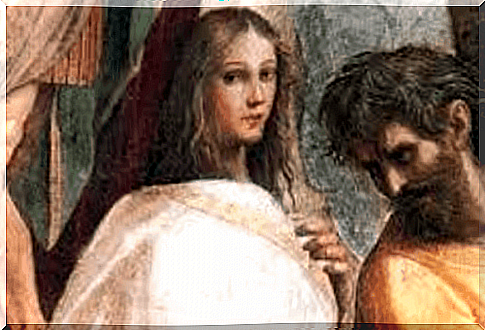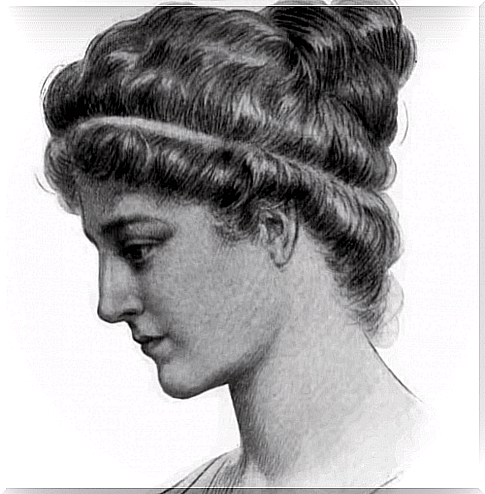Hypatia Of Alexandria: Science And Religion

Hypatia of Alexandria was the first woman philosopher, mathematician and physicist. She was born in Egypt towards the end of the 4th century. At the beginning of the 5th century she was a teacher at the Neoplatonic school in Alexandria, which she also directed.
Hypatia had in-depth knowledge in various areas such as geometry and logic. She lived a very ascetic life and thus followed the Neoplatonic rules.
As already mentioned, she was a teacher and educator at a first-class school for aristocrats, Christians and pagans who, after completing their training, took on high-ranking positions in Alexandrian society. So she became a very influential figure in the society of that time. Therefore she had a lot of envious people.
Her scientific achievements include primitive astrolabes, which were used to determine the position of stars in the sky. She also invented the hydrometer, with which the relative density of liquids could be determined. This was possible without complicated mathematical calculations.

Civil war between Christians and Gentiles
Alexandria was then the center of a bloody civil war between Christians and pagans. At that time the Patriarch Theophilus was the highest representative of Christianity. His goal was to end all non-Christian religious practice, including all forms of paganism. At the same time, however, the intellectual elite supported those who wanted to preserve pagan customs and temples. Therefore, to protect their own lives, all those philosophers who supported paganism fled Alexandria.
Hypatia of Alexandria, however, was of the opinion that there was no connection between philosophy, science and mathematics and these political-religious disputes. So she stayed in Alexandria and continued teaching.
She acted as if this civil war didn’t affect her. And amazingly, she was never bothered by anyone. Perhaps this was due to their always neutral stance on the subject.
Hypatia takes a clear position
But when Cyril, the bishop of Alexandria, took on a leading role, he began to relentlessly persecute anyone who did not belong to Christianity. At this point, Hypatia could no longer stay out of the disputes. She decided to support the Roman governor Orestes, who was responsible for the state order.
Since Hypatia was of the opinion that religion, as in the Greek Aristotelian polis, was only part of politics and not the other way around, she felt connected to this tradition. She was convinced that politics and the common good should always take precedence over religious authority.
Up until this point, Hypatia taught the Alexandrian elite in mixed classes made up of pagans and Christians. In doing so, she provided the best evidence that Christianity was compatible with other philosophical and religious ideas.
She was therefore admired by people of all classes and strata. By all but a small sect of fanatical Christians who would not tolerate their presence in Alexandria. In addition, Hypatia’s influence reached into the lower classes, but it was not as strong as that of religion.

The pagan and witch Hypatia of Alexandria
To the Christians in Alexandria, Hypatia was a pagan . So it wasn’t difficult to spread the rumor that she was a witch. For the illiterate, mathematical formulas and signs were symbols of devil worship. Also, they couldn’t tell astronomy from astrology. It so happened that Hypatia was henceforth regarded as a black witch.
During Lent, in March 415, Hypatia came home in her carriage. Suddenly she was attacked by a crowd and pulled out of her carriage. She was then taken to the Church of Caesareum in Alexandria.
Here, Hypatia was then skinned alive with pieces of ceramic that had previously been torn from the walls. Her remains were then cremated.
The murder was clearly religious, political, and philosophical in motivation. Philosophically, because Hypatia has always spoken out in favor of peaceful dialogue and thus against religious fanaticism. He was politically motivated because she believed that religion should submit to politics. And of course he was also religiously motivated, since Hypatia of Alexandria is probably the representative for the bitter struggle between Christians and pagans, who had to suffer a very tragic and cruel death.









